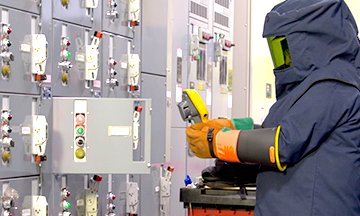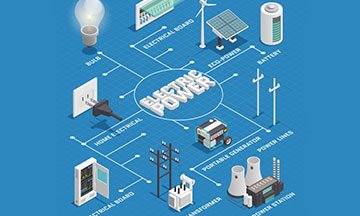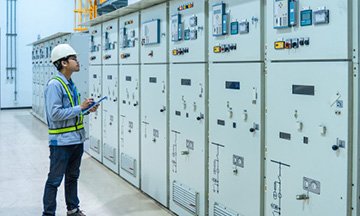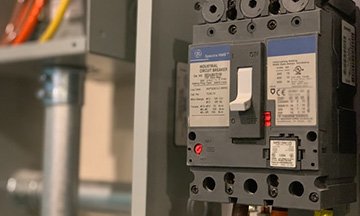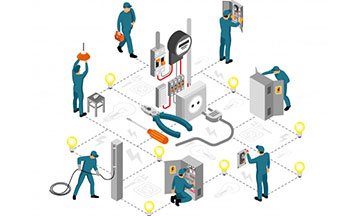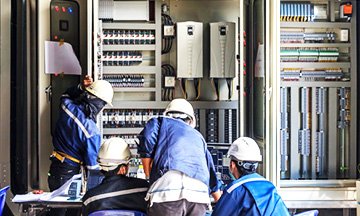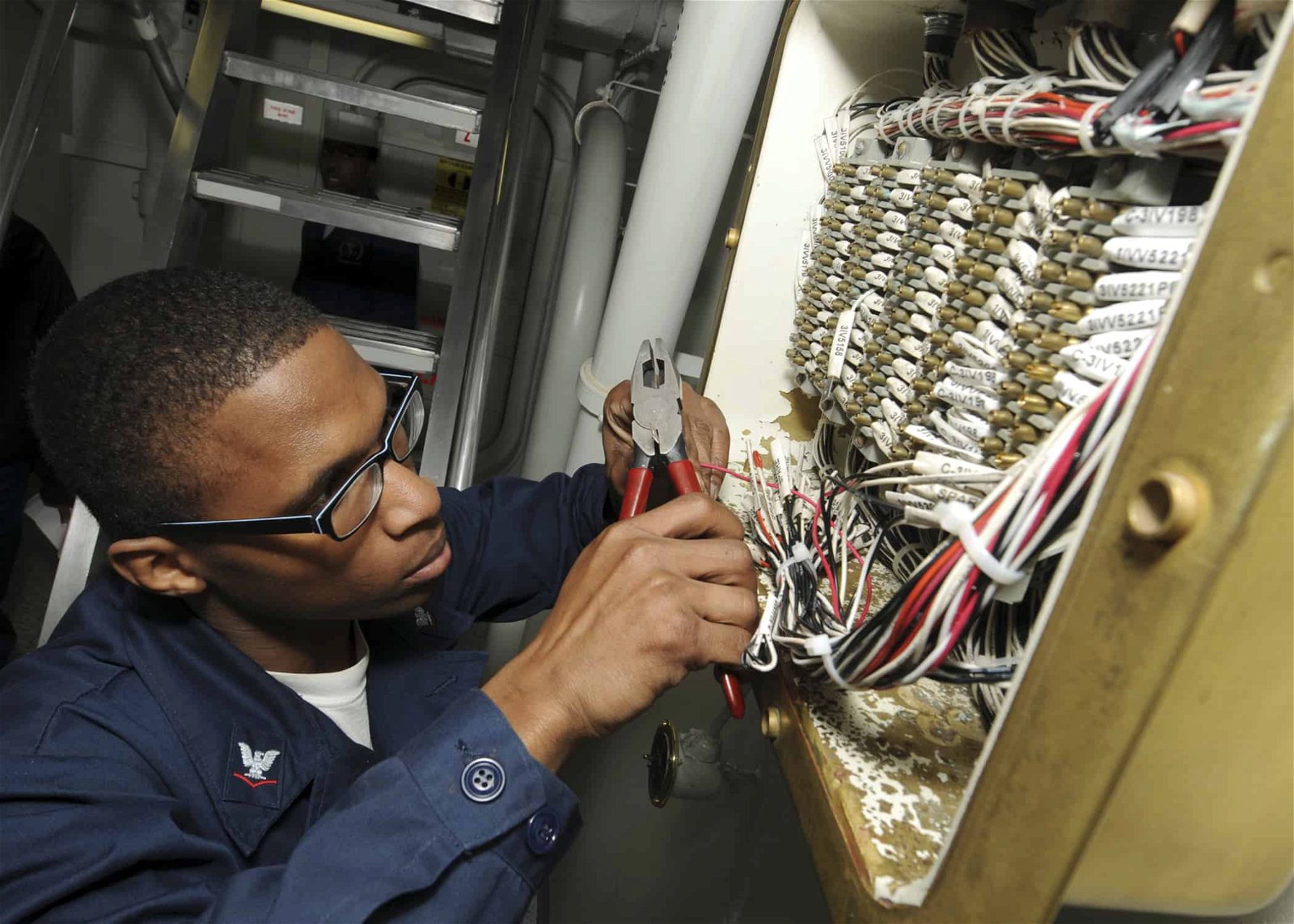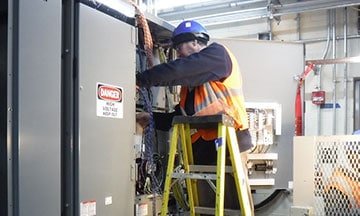Electrical Equipment Control & Monitoring System
Course Overview
This course encompasses the operation of and testing for the successful operation of electrical equipment like motors, variable-speed drives, transformers and so on.
The main reason behind commissioning and testing electric systems is to increase the strength, reliability and consistency of electrical power systems after the connection, by identifying any issues and providing a set of reference values for comparison with consequently scheduled tests.
Several types of testing, measuring and evaluating instruments are used to ensure that the electrical equipment is accurately functional. Fundamental aspects of electric equipment such as design, operating features, specifications, selection conditions, advanced fault detection methods, critical components as well as all maintenance issues are covered in detail.
What will the ‘Electrical Equipment Control & Monitoring System: Testing, Commissioning, Inspection, Preventive Maintenance and Repair’ program focus on? This course will cover the following areas:
- Reasons for re-commissioning Tests
- Commissioning Planning, Process and Procedures
- Testing Procedures
- Commissioning / Maintenance Tests
- Start-up or First Energisation
- Safety Aspect of Commissioning
This Zoe training course will provide you with a complete insight into the different types of generators, uninterruptable power systems (UPS), rectifiers, and inverters, circuit breakers, and fuses.
Course Objectives
Upon completing this course successfully, participants will be able to:
- Identify, select, install, operate, test, troubleshoot and sustain various types of electrical equipment
- Understand the testing process
- Perform investigative testing and inspection of critical components and identify common points of failure for electrical equipment
- Plan and prepare for testing
- Perform on load and offloads tests
- Employ calculated selection criteria for commissioning prerequisites, prognostic and pre-emptive maintenance, and cost estimation for electrical equipment
- Bear in mind safety aspects during testing
- Execute maintenance techniques required to minimise operating cost and maximise the productivity, reliability and durability of electrical equipment
Training Methodology
This is an interactive training program and will consist of the following training approaches:
- Lectures
- Audio & Video Presentations
- Group Discussions
- Assignments
- Case Studies
- Workshop Exercises
Just like all our courses, this program also follows the ‘Do-Review-Learn-Apply’ model.
Organisational Benefits
Companies who send in their employees to participate in this course can benefit in the following ways:
- Benefit from having professionally trained staff to carry out testing and commissioning
- Participants will understand the idea of the equipment testing and appreciate its significance in the operation and maintenance of an electrical power system
- Awareness of safety during testing and commissioning Make the participants mindful of equipment testing either during project construction or maintenance
- The course will allow participants to network and gain knowledge from each other’s shared experiences
- Participants will have adequate awareness to achieve reduced capital, operating and maintenance costs along with an increase in efficiency
Personal Benefits
Professionals who participate in this course can benefit in the following ways:
- Learn the testing process personally so that you do not have to rely on others for domain expertise
- Gain knowledge of the first energisation
- Understand the step-by-step approach of the commissioning process
- Have a wide-ranging knowledge of testing of HV and LV equipment
- Recognise the safety aspects of commissioning & testing
Who Should Attend?
This course is a must for anyone who is engaged in the commissioning and testing of electrical equipment. It is also advisable for a wide range of specialists involved in planning, commissioning and maintenance of electrical power systems. The following roles should also participate in this course:
- Safety Professionals
- Project Engineers
- Managers of Engineering Departments
- Testing Engineers / Technicians
- Maintenance Engineers / Technicians
- Consulting Engineers / Technicians
Course Outline
MODULE 1: ESSENTIALS OF ELECTRIC SYSTEMS
- Current and Resistance
- The Magnetic Field
- Capacitors
- Inductance
- Faraday’s Law of Induction
- Lenz’s Law
- Alternating Currents
- Three-Phase System
MODULE 2: INTRODUCTION TO MACHINERY PRINCIPLES
- Electric Machines and Transformers
- Common Terms and Principles
- Core Loss Values
- Permanent Magnets
- Production of Induced Force on a Wire
- The Magnetic Field
MODULE 3: TRANSFORMERS
- Introduction, Classification of Transformers
- Importance of Transformers
- Types and Construction of Transformers
- Analysis of Circuits Containing Ideal Transformers
- The Voltage Ratio Across a Transformer
- The Magnetizing Current in a Real Transformer
- The Dot Convention
- Cause of Transformer Failures
- Transformer Ratings
- The Equivalent Circuit of a Transformer
- The Autotransformer
- Three-Phase Transformers
- Types and Features of Insulation
- Interconnection with the Grid
MODULE 4: AC MACHINE FUNDAMENTALS
- The Rotating Magnetic Field
- The Induced Voltage in AC Machines
- The Induced Torque in a Three-Phase Machine
- Winding Insulation in AC Machines
- AC Machine Power Flow and Losses
MODULE 5: INDUCTION MOTORS
- Induction Motor Concepts
- Starting Induction Motor
- The Equivalent Circuit of an Induction Motor
- Induction Motor Construction
- Losses and The Power-Flow Diagram
- Induction Motor Torque-Speed Characteristics
MODULE 6: CONTROL OF INDUCTION MOTORS
- Speed Control by Changing the Line Frequency
- Speed Control by Changing the Rotor Resistance
- Speed Control by Changing the Line Voltage
- The Induction Generator
- Induction Motor Ratings
- Solid-State Induction Motor Drives
- Motor Protection
MODULE 7: MAINTENANCE OF MOTORS
- Refurbishment of AC Induction Motors
- Enclosures and Cooling Methods
- Characteristics of Motors
- Diagnostic Testing for Motors
- Design Characteristics
- Insulation of AC Motors
- Failures in Three-Phase Stator Windings
- Application Data
- Predictive Maintenance
- Motor Troubleshooting
- Failures in Three-Phase Stator Windings
MODULE 8: POWER ELECTRONICS, RECTIFIERS AND PULSE-WIDTH MODULATION INVERTERS
- Introduction to Power Electronics
- Power Electronics Components
- Basic Rectifier Circuits
- Filtering Rectifier Output
- Pulse Circuits
- A Relaxation Oscillator Using a PNPN Diode
- Pulse Synchronization
- Inverters
MODULE 9: VARIABLE SPEED DRIVES
- Input Power Converter (Rectifier)
- Inverters
- DC Link Energy
- Basic Principles of AC Variable Speed Drives
- Regeneration
- Transients
- Harmonics Power Factor and Failures
- Thyristor Failures and Testing
- AC Drive Application Issues
- Motor Bearing Currents
- Summary of Application Rules for AC Drives
- AC Power Factor
- IGBT Switching Transients
- PWM-2 Considerations
- Cabling Details for AC Drives
- Cable
MODULE 10: SYNCHRONOUS MACHINES
- Physical Description
- Pole Pitch: Electrical Degrees
- Synchronous Machine Windings
- Field Excitation
- No-Load and Short-Circuit Values
- Torque Tests
- Excitation of a Synchronous Machine
- Machine Losses
MODULE 11: SYNCHRONOUS GENERATORS
- Synchronous Generator Construction
- The Speed of Rotation and Phasor Diagram of a Synchronous Generator
- Power and Torque in Synchronous Generators
- The Synchronous Generator Operating Alone
- Parallel Operation of AC Generators
- Synchronous Generator Ratings
- Synchronous Generator Capability Curves
- Short-Time Operation and Service Factor
MODULE 12: GENERATOR INSPECTION AND MAINTENANCE
- On-Load Maintenance and Monitoring
- Off-Load Maintenance
- Generator Testing
MODULE 13: GENERATOR OPERATIONAL PROBLEMS, AND REFURBISHMENT OPTIONS
- Typical
- Generator Rotor Modifications
- Upgrades and Updates
- High-Speed Balancing
- Flux Probe Test
MODULE 14: VIBRATION ANALYSIS
- Resonance
- Logarithms and Decibels
- The Use of Filtering
- Vibration Instrumentation
- The Application of Sine Waves to Vibration
- Multi-mass Systems
- Time Domain
- Frequency Domain
- Machinery Example
- Vibration Analysis
- Resonant Frequency
- Vibration Severity
MODULE 15: POWER STATION ELECTRICAL SYSTEMS AND DESIGN REQUIREMENTS
- Introduction
- System Requirements
- Electrical System Description
- System Performance
- Power Plant Outages and Faults
- Uninterruptible Power Supply (UPS) Systems
- DC Systems
MODULE 16: POWER STATION PROTECTIVE SYSTEMS
- Introduction
- Generator Protection
- Design Criteria
- DC Tripping Systems



